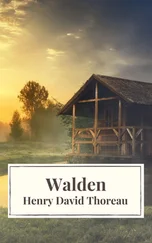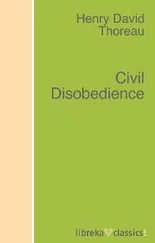This sand seemed to us the connecting link between land and water. It was a kind of water on which you could walk, and you could see the ripple-marks on its surface, produced by the winds, precisely like those at the bottom of a brook or lake. We had read that Mussulmen are permitted by the Koran to perform their ablutions in sand when they cannot get water, a necessary indulgence in Arabia, and we now understood the propriety of this provision.
Plum Island, at the mouth of this river, to whose formation, perhaps, these very banks have sent their contribution, is a similar desert of drifting sand, of various colors, blown into graceful curves by the wind. It is a mere sand-bar exposed, stretching nine miles parallel to the coast, and, exclusive of the marsh on the inside, rarely more than half a mile wide. There are but half a dozen houses on it, and it is almost without a tree, or a sod, or any green thing with which a countryman is familiar. The thin vegetation stands half buried in sand, as in drifting snow. The only shrub, the beach-plum, which gives the island its name, grows but a few feet high; but this is so abundant that parties of a hundred at once come from the main-land and down the Merrimack, in September, pitch their tents, and gather the plums, which are good to eat raw and to preserve. The graceful and delicate beach-pea, too, grows abundantly amid the sand, and several strange, moss-like and succulent plants. The island for its whole length is scalloped into low hills, not more than twenty feet high, by the wind, and, excepting a faint trail on the edge of the marsh, is as trackless as Sahara. There are dreary bluffs of sand and valleys ploughed by the wind, where you might expect to discover the bones of a caravan. Schooners come from Boston to load with the sand for masons' uses, and in a few hours the wind obliterates all traces of their work. Yet you have only to dig a foot or two anywhere to come to fresh water; and you are surprised to learn that woodchucks abound here, and foxes are found, though you see not where they can burrow or hide themselves. I have walked down the whole length of its broad beach at low tide, at which time alone you can find a firm ground to walk on, and probably Massachusetts does not furnish a more grand and dreary walk. On the seaside there are only a distant sail and a few coots to break the grand monotony. A solitary stake stuck up, or a sharper sand-hill than usual, is remarkable as a landmark for miles; while for music you hear only the ceaseless sound of the surf, and the dreary peep of the beach-birds.
There were several canal-boats at Cromwell's Falls passing through the locks, for which we waited. In the forward part of one stood a brawny New Hampshire man, leaning on his pole, bareheaded and in shirt and trousers only, a rude Apollo of a man, coming down from that "vast uplandish country" to the main; of nameless age, with flaxen hair, and vigorous, weather-bleached countenance, in whose wrinkles the sun still lodged, as little touched by the heats and frosts and withering cares of life as a maple of the mountain; an undressed, unkempt, uncivil man, with whom we parleyed awhile, and parted not without a sincere interest in one another. His humanity was genuine and instinctive, and his rudeness only a manner. He inquired, just as we were passing out of earshot, if we had killed anything, and we shouted after him that we had shot a buoy , and could see him for a long while scratching his head in vain to know if he had heard aright.
There is reason in the distinction of civil and uncivil. The manners are sometimes so rough a rind that we doubt whether they cover any core or sap-wood at all. We sometimes meet uncivil men, children of Amazons, who dwell by mountain paths, and are said to be inhospitable to strangers; whose salutation is as rude as the grasp of their brawny hands, and who deal with men as unceremoniously as they are wont to deal with the elements. They need only to extend their clearings, and let in more sunlight, to seek out the southern slopes of the hills, from which they may look down on the civil plain or ocean, and temper their diet duly with the cereal fruits, consuming less wild meat and acorns, to become like the inhabitants of cities. A true politeness does not result from any hasty and artificial polishing, it is true, but grows naturally in characters of the right grain and quality, through a long fronting of men and events, and rubbing on good and bad fortune. Perhaps I can tell a tale to the purpose while the lock is filling,—for our voyage this forenoon furnishes but few incidents of importance.
Early one summer morning I had left the shores of the Connecticut, and for the livelong day travelled up the bank of a river, which came in from the west; now looking down on the stream, foaming and rippling through the forest a mile off, from the hills over which the road led, and now sitting on its rocky brink and dipping my feet in its rapids, or bathing adventurously in mid-channel. The hills grew more and more frequent, and gradually swelled into mountains as I advanced, hemming in the course of the river, so that at last I could not see where it came from, and was at liberty to imagine the most wonderful meanderings and descents. At noon I slept on the grass in the shade of a maple, where the river had found a broader channel than usual, and was spread out shallow, with frequent sand-bars exposed. In the names of the towns I recognized some which I had long ago read on teamsters' wagons, that had come from far up country; quiet, uplandish towns, of mountainous fame. I walked along, musing and enchanted, by rows of sugar-maples, through the small and uninquisitive villages, and sometimes was pleased with the sight of a boat drawn up on a sand-bar, where there appeared no inhabitants to use it. It seemed, however, as essential to the river as a fish, and to lend a certain dignity to it. It was like the trout of mountain streams to the fishes of the sea, or like the young of the land-crab born far in the interior, who have never yet heard the sound of the ocean's surf. The hills approached nearer and nearer to the stream, until at last they closed behind me, and I found myself just before nightfall in a romantic and retired valley, about half a mile in length, and barely wide enough for the stream at its bottom. I thought that there could be no finer site for a cottage among mountains. You could anywhere run across the stream on the rocks, and its constant murmuring would quiet the passions of mankind forever. Suddenly the road, which seemed aiming for the mountain-side, turned short to the left, and another valley opened, concealing the former, and of the same character with it. It was the most remarkable and pleasing scenery I had ever seen. I found here a few mild and hospitable inhabitants, who, as the day was not quite spent, and I was anxious to improve the light, directed me four or five miles farther on my way to the dwelling of a man whose name was Rice, who occupied the last and highest of the valleys that lay in my path, and who, they said, was a rather rude and uncivil man. But "what is a foreign country to those who have science? Who is a stranger to those who have the habit of speaking kindly?"
At length, as the sun was setting behind the mountains in a still darker and more solitary vale, I reached the dwelling of this man. Except for the narrowness of the plain, and that the stones were solid granite, it was the counterpart of that retreat to which Belphoebe bore the wounded Timias,—
"In a pleasant glade,
With mountains round about environed,
And mighty woods, which did the valley shade,
And like a stately theatre it made,
Spreading itself into a spacious plain;
And in the midst a little river played
Amongst the pumy stones which seemed to plain,
With gentle murmur, that his course they did restrain."
Читать дальше












